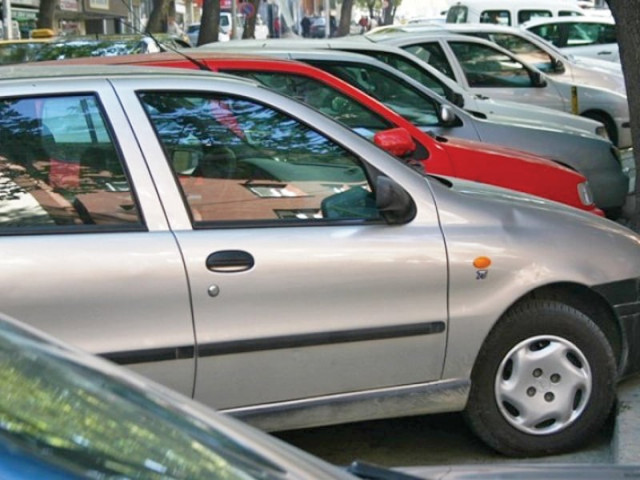Islamabad -Point Tax and Tax Department introduces new reforms aimed at simplifying vehicle registration, transferring ownership and tax payment processes.
These measures include personalized license plates, digital vehicle registration cards and an upgraded mobile app for online tax payments – all designed to make procedures more efficient and accessible.
In an exclusive interview with the app on Sunday, Director Excise and Taxation Department Islamabad, Bilal Azam said that the department focuses on improving vehicle-related services, including registration, ownership transfers, token tax payments and post-registration tasks.
Azam stated that the goal is to ease the citizens as much as possible, whether right outside the door or via online platforms. Through digital services such as Islamabad Citizen app, people can conveniently pay their token tax from home, reducing the need to visit offices. He added that the digital shift has improved both tax recovery and the supply of services.
With regard to the personalized license plate system, Azam said the department is preparing to launch a new system, the first of its kind in Pakistan. Under the system, registration numbers will be attached to the vehicle owner rather than the vehicle. When a car is sold, the license plate is returned to the previous owner and the new buyer receives a fresh plate attached to their identity.
He explained that this step will ensure that no vehicle remains unregistered after a sale. When the biometric verification is completed for the transfer, the previous plate becomes available and is allocated to the seller while the buyer gets a new personalized number. The initiative is expected to help law enforcement in vehicle tracking, ownership tracking, data access and e-challan enforcement.
AZAM also stated that vehicle registration cards currently issued as physical smart cards will be digitized soon. The digital version will be available through the user’s Pak-ID account, similar to digital national identity cards issued by Nadra.
When a vehicle is sold, the seller submits an online application via the app. The department is working to enable biometric verification via mobile devices, eliminating the need for personal visits. Once the transfer is processed, the buyer’s digital registration card is automatically displayed in their PAK ID profile.
Azam urged citizens to pay their token taxes within July to take advantage of government discounts. He noted that many vehicles from the 1980s and 1990s were missing tax registers or transactions for decades. Despite public messages and advertisements, non-responding owners got their registrations canceled.
For vehicles without transactions since the 1990s or 2000s, a new policy has been developed to identify and manage such cases. If no token tax has been paid for two to three years, a 50% penalty is imposed; For extended periods, a 100% penalty is charged. These sanctions aim to encourage timely payments.
In addition, a 10% discount is offered to token tax payments made in July to further incentive compliance.
Azam emphasized that the department had previously launched the “City Islamabad” app, which simplifies services including token tax payments. The app available on Android and iPhone allows users to register, enter their vehicle number and generate a PSID (Payment Slip ID). The system automatically calculates the applicable fees and distinguishes between files and non-file citizens. Payments can be made via any online banking system linked to PSID.
He emphasized the importance of digital platforms, especially considering that approx. 1.42 million vehicles are registered with the department. Handling such quantities manually would be ineffective and would result in overload on excise duties. Digitization has significantly relieved this burden by enabling remote transactions.
Another major reform has been switched from material smart cards to fully digital vehicle cards that are expected to start soon. These will be integrated with Nadras Pak ID so that vehicle owners can download their registration card directly.
In addition, the department works to implement mobile -based biometric verification for transfers of ownership, enabling sellers and buyers to implement transactions from mobile devices.
Azam advised citizens to regularly pay their token taxes and avoid delays as the department now actively identifies inactive vehicles and imposes sanctions. Cancellation of registrations for long -inactive vehicles is part of a wider effort to maintain accurate items and secure accountability.
The department’s reforms aim to ensure that each vehicle in the capital is registered, taxed and documented. This is expected to improve government tax collection and support safety agencies in the tracking of vehicles when needed.
By completing the interview, Azam said personalized license plates, digital vehicle cards and online tax payment systems are set to transform vehicle -related services in the capital. Citizens can expect faster, more transparent and practical services, reducing the dependence on outdated manual procedures.



